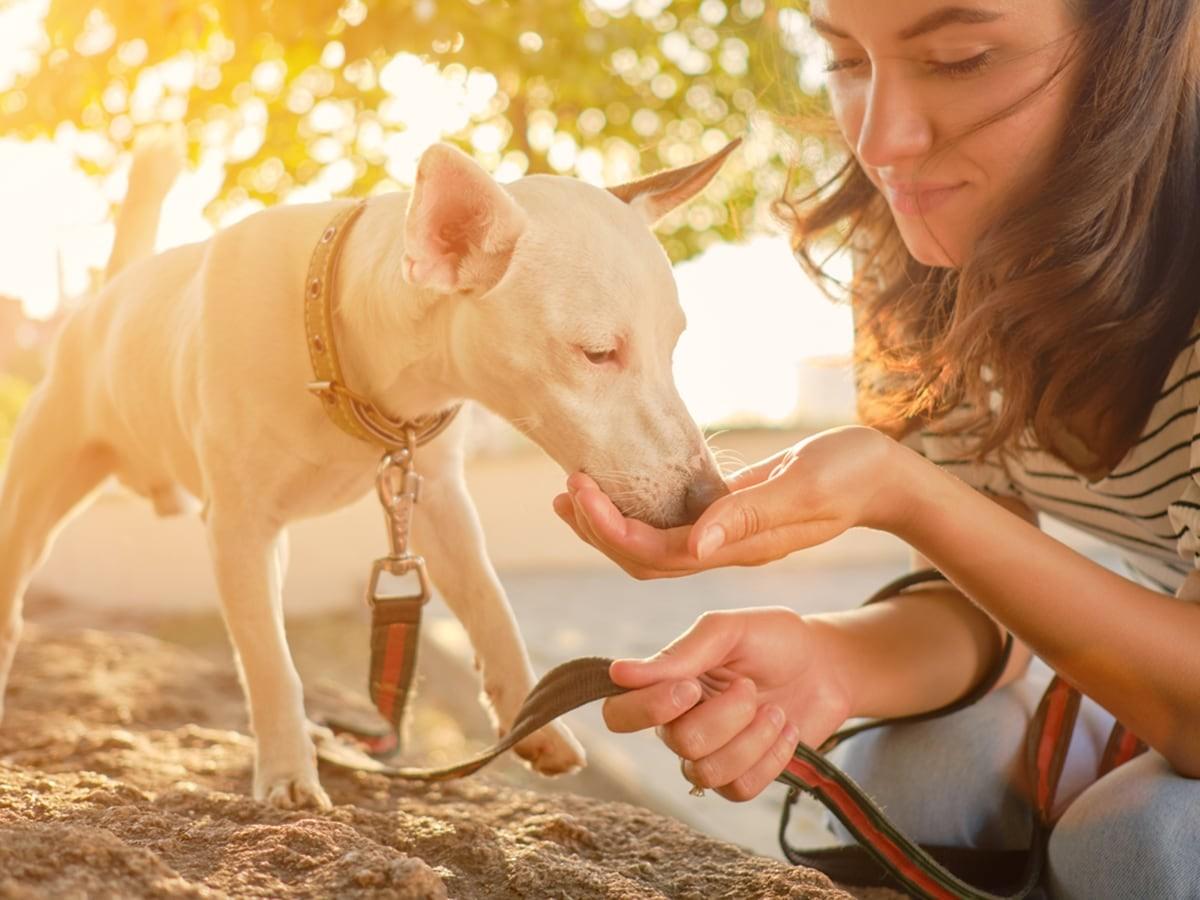Can your pup enjoy a sweet summer treat alongside you? Let's explore whether nectarines are a safe and healthy addition to your dog's diet.
The Verdict: Nectarines in Moderation
The good news? Nectarines are not toxic to dogs! They offer a variety of vitamins and minerals that can benefit your furry friend. These include:
Vitamin A: Important for eye health and a shiny coat
Vitamin C: Supports the immune system (though dogs naturally produce some)
Potassium: Helps regulate bodily fluids and muscle function
Magnesium: Aids in bone health and enzyme function
Dietary Fiber: Promotes healthy digestion
However, it's important to remember that nectarines should be given as an occasional treat, not a dietary staple. Here's why:
Sugar Content: Nectarines contain natural sugars, which can be too much for a dog's digestive system, especially in large quantities.
Choking Hazard: Nectarine pits are a choking hazard and can also irritate your dog's stomach and intestines.
Intestinal Blockage: If swallowed, a pit could cause an intestinal blockage. This situation can be severe and may require immediate surgery.
Benefits of Nectarines for Dogs
In moderation, nectarines can provide some health benefits for your dog:
Improved Digestion: The dietary fiber in nectarines can aid digestion and promote regularity.
Immune System Support: The vitamins and minerals in nectarines can offer a slight boost to your dog's immune system.
Healthy Skin and Coat: Vitamin A in nectarines contributes to healthy skin and a shiny coat.
What happens if a dog eats a nectarine seed?
Nectarine pits, like the pits of many stone fruits, contain a compound that breaks down into cyanide. While a dog would need to crush and consume multiple pits to reach a dangerous level, it's best to err on the side of caution. If you suspect your dog ate a nectarine pit, look for symptoms like:
Cyanide Poisoning:
Dilated Pupils
Excessive Drooling
Difficulty Breathing
Bright Red Gums
Shock
If you notice any of these signs, contact your veterinarian immediately.
Fresh, Canned, or Dried Nectarines?
Fresh is Best: Fresh nectarines are the healthiest option for your dog. They contain the most nutrients and have the least amount of sugar.
Canned Nectarines: Avoid canned nectarines as they are often packed in sugary syrups and preservatives, which can be unhealthy for dogs.
Dried Nectarines: Dried nectarines are a concentrated source of sugar and should be given in very small quantities because they can cause digestive upset.
Are Nectarines Toxic to Dogs?
No, nectarines are not toxic to dogs. However, the pits contain small amounts of cyanide, which can be harmful if ingested. Always remove the pit before giving any nectarine to your dog.
Expert Insights From Spot
While it can be fun to share our favorite foods with our pets, pet parents should keep in mind that sometimes, eating human food can upset a pet's stomach. Spot's internal data shows that on average, pet insurance claims for dietary indiscretions (pets eating too much of what they shouldn't) cost $572.* This high cost highlights why pet parents should keep an eye on what their pets eat, and do their research before sharing their favorite snacks with their dogs. Being mindful of what treats we share with our pets can help keep them healthy while helping pet parents avoid unnecessary vet bills.
What Other Fruits Are Good for Dogs?
Many other fruits are safe and healthy for dogs in moderation. Here are a few examples:
Apples: A great source of fiber and vitamins A and C. Remove the core and seeds before giving to your dog.
Bananas: Rich in potassium and fiber. Offer in moderation due to the high sugar content.
Blueberries: Packed with antioxidants and good for gut health.
Cantaloupe: A refreshing and hydrating treat full of vitamins A and C.
Strawberries: Low in calories and a good source of fiber and vitamin C.
Remember: Always consult your veterinarian before introducing any new food to your dog's diet, especially if they have any pre-existing health conditions.
Are there any fruits toxic to dogs?
Yes! While many fruits are safe and even beneficial to dogs, there are some you should avoid:
Grapes and Raisins: Even small amounts can cause kidney failure in dogs.
Cherries: The pits, stems, and leaves of cherries contain cyanide.
Unripe Tomatoes: The green parts of the plant and unripe tomatoes contain a toxin called solanine.
Avocados: Avocados contain persin, which can cause vomiting and diarrhea in dogs.
Always Consult Your Vet
Before introducing any new food to your dog's diet, consult your veterinarian. They can help you determine safe serving sizes and address specific dietary needs for your pup.
Key Takeaways
Nectarines can be a refreshing and healthy occasional treat for your dog. However, always prioritize their regular, balanced diet and remember to follow these safety guidelines. When in doubt, consult your veterinarian for personalized advice on incorporating new foods into your dog's diet.

With 15 years as a dog and cat parent, my pet articles are a mix of humor and firsthand experience - proof that the best stories often come with paws and purrs.
*Jan 2019 to Aug 2024 Spot Pet Insurance Services, LLC claims data.
Lesser, Jennifer. "Can Dogs Eat Nectarines?" The Spruce Pets, 09 Oct. 2025, https://www.thesprucepets.com/can-dogs-eat-nectarines-4844953.
Saylor, April. "Can Dogs Eat Nectarines?" PetMD, 06 Mar. 2024, https://www.petmd.com/dog/nutrition/can-dogs-eat-nectarines.
The information presented in this article is for educational and informational purposes only and does not constitute or substitute for the advice of your veterinarian.











